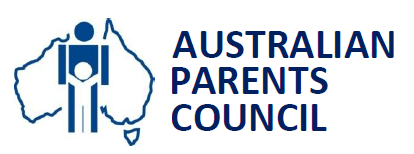President's blog: Tackling consent at home and at school
Gender equity and the seemingly difficult topic of consent has consumed the media and the conversations at home recently.
So I want to start a conversation about what we are doing at home to teach our kids about consent and gender equity, because the first time our kids hear about this shouldn’t be in a health & PE lesson.
At my home, we play a hypothetical game over the dinner table. It comes with a warning that the expectation is that it will be awkward, but there are no wrong answers, I want them to think and work things out for themselves so all debate is welcome.
Then I pose my three teenage boys an age-appropriate hypothetical but challenging situation. My husband and I then listen and facilitate the discussion and we intersperse the discussion with examples of our own lived experiences and the times we made mistakes or when we did the wrong things.
Only just very recently my sons have connected the dots of behaviours they have witnessed from me (checking the car before we get in, taking the long way because it’s lit or running to get to the car) with the fact that I can feel unsafe and that is because of my gender.
 If you are feeling ill prepared or feel you don’t know enough to tackle these definitely awkward but necessary conversation with your kids, there are some links to articles that might help below on this page. I’m a big fan of leaving articles/pages open on the computer screen and then going back later and asking what they thought of it. It slightly lowers the awkwardness levels!
If you are feeling ill prepared or feel you don’t know enough to tackle these definitely awkward but necessary conversation with your kids, there are some links to articles that might help below on this page. I’m a big fan of leaving articles/pages open on the computer screen and then going back later and asking what they thought of it. It slightly lowers the awkwardness levels!
This is an extract from former APC President Jenni Rickard's blog from March 2021, that also calls on parents to raise issues at school with the school community.
'The ONLY way this issue can be solved is if EVERYBODY in the community takes responsibility from the highest echelons of federal government to the school yards and our own family homes.Teaching the younger generations about consent needs to be embedded, modelled and practiced everywhere.'
Read the full blog here.
